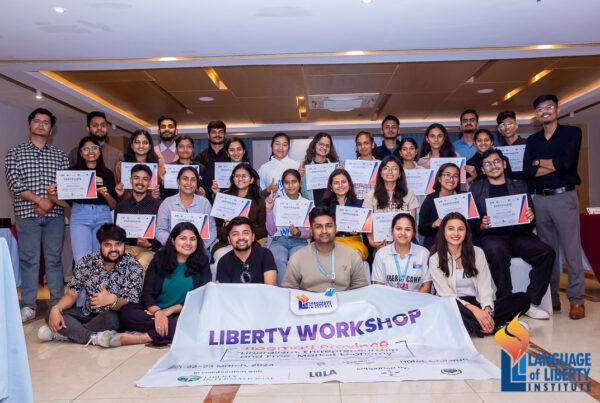In many places around the world we hear about the use of social media and mobile apps to help people communicate with each other in opposition to the state or against mainstream standards. From Egypt to Venezuela, social media has played an instrumental role in the organisation of protests.
Fearing the same, the Chinese government has long sought to block the use of social media sites, thus Facebook and Twitter have a very minor presence in the country. Nonetheless, here in Shanghai I’ve learned about some of the innovative ways that local mobile apps are being used to spread ideas of liberty.
While it is risky to talk about politics or to openly criticize the government in China, the field of economics provides somewhat safe ground to discuss ideas of liberty. Even then, one still must be mindful of one’s wording, because the terms ‘free-market’ or ‘capitalism’ are still blacklisted, whereas the phrase ‘market economy’ is perfectly acceptable.
This past month a group of professors of Austrian Economics (a number of whom spoke at our 2012 Shanghai Austrian Economic Summit) got together and decided to create an online course entirely based on Hayek’s works.
What’s exceptional about their approach is that the whole course is hosted on Weixin (known as WeChat for English users), which is like a Chinese version of Whatsapp. The lectures are given live, enabling students to tune in and respond in real time, while those who can’t make it at the time can still catch up later.
The professor gives his lecture by leaving voice messages for the group. Each clip is limited by the app to being just a minute long, though they can be played consecutively. All the while, students can type in their questions, to which the professor can reply instantly.
This style of teaching makes for a completely new learning experience, one where the professor must be as concise and clear as possible and students are easily able to get involved in the discussion.
Even though the costs of running this course are incredibly low, the demand for it is so great that the tuition has been set quite high—especially for Chinese standards—at 5,000rmb ($800). Already there are 345 paying students enrolled, with nearly all of them entrepreneurs.
And they aren’t the only ones…
The Babel Institute, which also hosts digital courses in Austrian Economics, has nearly 100 students come together each week on QQ (an online chat platform), to go through Austrian Economic classics a chapter at a time. Between sessions the students are given regular assignments, taking things further than your average book club. Currently they are studying one of Carl Menger’s works.
Babel’s online publication The Bethel Review is published twice a week on a mobile app with translated articles from Mises Daily, Ron Paul, etc., and has 20,000 followers. Another 4,000 follow their account that publishes translated versions of Austrian Economics articles and books.
Just since the Chinese New Year (January 31st) they have already translated and published online:
- Deflation and Liberty by Guido Hulsman,
- A Study Guide to Human Action,
- After the Welfare State (published both online and in print),
- 15 Great Austrian Economists, a compilation of essays by DeSoto, Peter Klein, et al., and
- Introduction to Austrian Economics by Thomas Taylor.
They are planning to hold an intensive translation summer camp right after this year’s Shanghai Austrian Economic Summit, for which 60 students have already signed up.
“This how we can undermine state censorship.” says Babel co-founder Tyler Xiong.
This is undoubtedly the case, as government monopolies over publishing, television, and radio broadcasting have been rendered next to useless by rapid internet innovation. And we are seeing this take place all over the world, in first world countries and third world countries alike, at a far faster rate than any government can keep up with.
It’s time to rethink the traditional ways of opposing the state, for now it’s a whole new world, where spontaneous order through the internet has become mainstream. How will you make use of it?









Great Sweater!